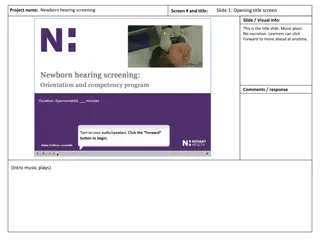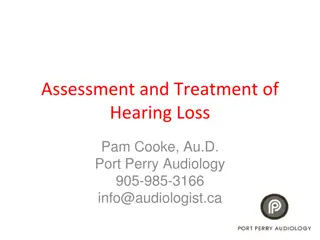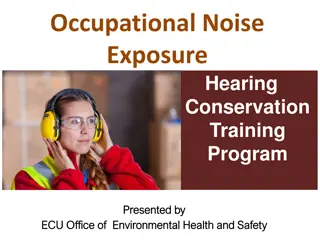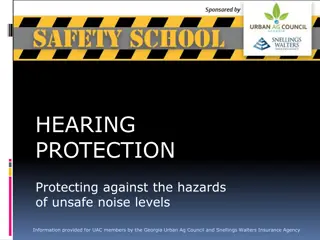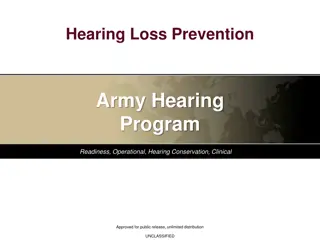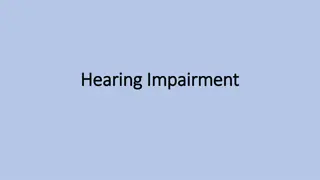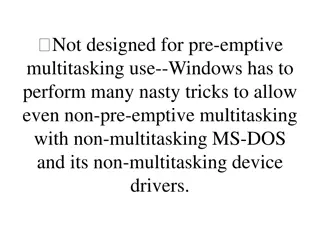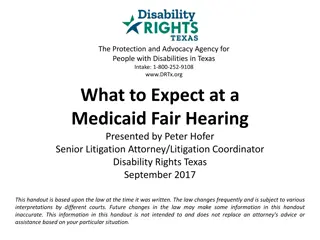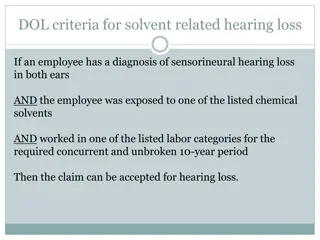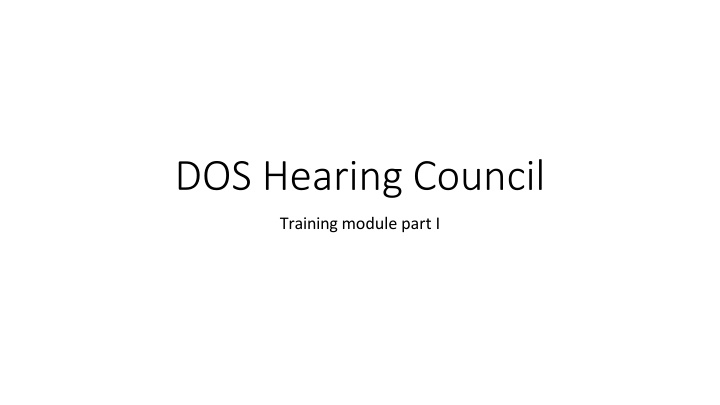
Hearing Council Training and Student Code of Conduct
Explore the essentials of Hearing Council Training and the Student Code of Conduct, covering topics like standards of proof, due process, fundamental fairness, and hearing decorum. Learn about the responsibilities students have to follow regulations and maintain professionalism during hearings.
Download Presentation

Please find below an Image/Link to download the presentation.
The content on the website is provided AS IS for your information and personal use only. It may not be sold, licensed, or shared on other websites without obtaining consent from the author. If you encounter any issues during the download, it is possible that the publisher has removed the file from their server.
You are allowed to download the files provided on this website for personal or commercial use, subject to the condition that they are used lawfully. All files are the property of their respective owners.
The content on the website is provided AS IS for your information and personal use only. It may not be sold, licensed, or shared on other websites without obtaining consent from the author.
E N D
Presentation Transcript
DOS Hearing Council Training module part I
The code of conduct Students have the responsibility to follow all regulations outlined in this policy. Students are responsible for their conduct from the time of application for admission through the actual awarding of a degree. The code includes expectations of student behavior, as well as outlining the charges a student and/or student organizations can encounter when there are violations of the code. A full copy of the code can be found online and in the Blackboard module. Please read it over thoroughly.
Standard of proof Preponderance of the evidence is defined as evidence supports that a given allegation is more likely to be true than not true. Technical rules of evidence applicable to civil and criminal cases do not apply when resolving incidents outlined in the code. The complainant bears the burden of establishing a violation of the Code by a preponderance of relevant and admissible evidence. The standard of proof for incidents of non-academic misconduct is a preponderance of the evidence.
Due process Higher courts hold Universities accountable for providing due process to all students involved in a hearing. Due process consists of: Fair notice Opportunity to prepare information for the hearing Objective view of the facts
Fundamental fairness Fundamental Fairness is the standard of due process that courts hold institutions of higher education accountable. Rules are clear and not overly broad. Rules must have a fair and reasonable purpose. Rules must be applied in fairness and good faith.
Hearing decorum/impactful questioning
Hearing decorum It is expected that you act, hold yourself, and question involved parties as a professional. Personal phones are to be silenced and out of sight. If on-call, please make that public when introducing yourself to the room. Business casual or everyday work attire is acceptable. Please donot wear jeans. Body language matters Please be aware of your facial expressions and keep your body tone relaxed. Be aware of non-verbal expressions. Strict confidentiality You are not to share any details of the hearing at any time.
Asking impactful & effective questions Asking questions is a primary component while serving as a member of the Hearing Council. At the heart of every hearing is an incident and the events must be reached through objective questions. Leading question to not ask: You had a lot of alcohol that night, right? This type of question could initiate thoughts of victim blaming, so instead ask Did you have alcohol that night? If so, how much do you think you had/were served? Ask questions that clarify the incident and the information shared by the Respondent and the Complainant.
Asking impactful & effective questions cont. When asking questions, maintain these standards: Be clear. Be accurate. Be relevant. Be logical. Be fair. Be reasonable.
Student Sexual misconduct questioning When hearing an alleged sexual misconduct case, there should be extra focus on discovering the answers to these questions: Was there force? Force is the use of physical violence and/or imposing on someone physically to gain sexual access. Was there consent? -Consent is clear, knowing, voluntary, words or actions, gives permission for specific sexual activity.
Student Sexual misconduct questioning Cont. Was the victim incapacitated? -UofL s definition of Incapacitation is a state in which a person cannot make rational, reasonable decisions because the person lacks the ability to give knowing consent (i.e., to understand the "who, what, when, where, why or how" of the sexual interaction). Incapacitation also covers a person whose incapacity results from mental disability, sleep, unconsciousness, involuntary physical restraint, or from the effects of alcohol or other drugs.
Force, Consent, Incapacitation Cont. 1 Force: also includes threats, intimidation (implied threats) and coercion that overcomes free will or resistance or that produces consent. -Coercion is unreasonable pressure for sexual activity. -Consider: frequency, intensity, duration, and isolation.
Force, Consent, Incapacitation Cont. 2 Consent: is active. Silence cannot be interpreted as consent. -Consent to any one form of sexual activity does not automatically imply consent to any other forms of sexual activity. Incapacitation: is a state in which a person cannot make rational, reasonable decisions because the person lacks the ability to give knowing consent (i.e., to understand the "who, what, when, where, why or how" of the sexual interaction). Incapacitation also covers a person whose incapacity results from mental disability, sleep, unconsciousness, involuntary physical restraint, or from the effects of alcohol or other drugs. -What, if any, was the form of incapacity?

